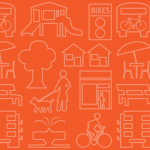For millions of people living in substandard rental housing, health hazards are all too familiar. As of 2018, more than 45 million, or 45% of homes in the United States had one or more health or safety hazards.
Yet renters who might report in-home hazards to property owners or local housing authorities experience many obstacles, including fear of eviction and retaliation by landlords; fear of deportation (for undocumented renters); language barriers; and general distrust of government.
Proactive rental inspection (PRI) programs are one way to alleviate housing quality issues. Unlike complaint-based rental inspection programs, PRI programs perform inspections on a regular schedule, reducing the likelihood that renters will be evicted or illegally punished for reporting hazards. PRI programs can work cooperatively with building owners to improve housing quality and preserve the existing stock of affordable housing by preventing buildings from deteriorating.
A recent article published by the Illinois Answers Project — a nonpartisan investigative news organization — compares and contrasts Denver's rental inspection program with Chicago's lack of inspections and tracking. The article cites ChangeLab Solutions senior attorney Gregory Miao on rental inspection program design and rollout. “Ensuring that everyone has healthy housing is a foundational public health service that we should all be providing,” Miao said.
“Ensuring that everyone has healthy housing is a foundational public health service that we should all be providing.” ―Gregory Miao
Read the full article on the website for the Illinois Answers Project to learn more.
9/28/2023
